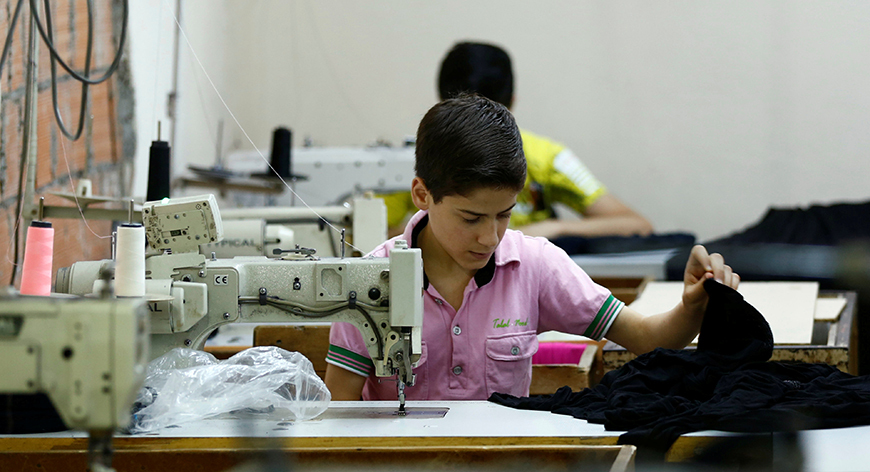While many Syrian refugees have excelled in learning the Turkish language, allowing large numbers of them to enter the country’s workforce, other workers who have not grasped the language are facing difficulties moving up to higher paid positions.
According to media expert Suhaib Mohammed, there is no doubt that knowing the Turkish language greatly impacts the quality of life in Turkey, especially in the business sector.
He adds: "It is obvious that the wages of the Syrian skilled with Turkish are higher than those of the unskilled because the former will have the permanent opportunities to seek work with higher salaries, unlike the second who tends to remain in his hard-to-find, often low-wage job."
"We are talking about a Turkish market, that is, the number of jobs provided by Turks is higher than those by Syrians or Arab employers," Mohammed says.
It is for this reason, Mohammed concludes, that "learning Turkish language for Syrians is a need and a necessity, not a luxury."
Additional benefits
For his part, Abdullah al-Rasheed, a worker at a plastic factory in the Turkish city of Adana, spoke of the additional benefits he received after he mastered the language without changing his place of work.
"Before I learned Turkish, I was just a regular worker. My salary was set at 1,100 Turkish lira ($310) a month, but after learning the language, as a result of my daily contact with Turkish workers and perseverance, I was promoted from a regular worker to a production line manager and I had a raise of 400 lira," Rasheed explained.
"Besides, I was officially registered at the insurance company, and I have legal documents that guarantee my rights as a formal worker," he added.
Asked if his fellow Syrians were getting the same privileges, he said, "They have received promises from the factory owner and they are waiting."
Career development
Rasheed illustrates the reality of career development that is impossible to achieve unless Syrian workers master the language of their host country, according to researcher Ahmed al-Said.
"The ability to deal with Turkish workers and communicate with them qualifies the worker to work alongside them, that is, in senior positions, taking into account the size of the establishment," says Said. "The worker who did not learn Turkish will not jump up to the top."
Said said that it is natural for a Syrian who is proficient in Turkish to have more opportunity in jobs requiring both Arabic and Turkish, and in quality jobs like in restaurants or stores.
This article was edited by The Syrian Observer. Responsibility for the information and views set out in this article lies entirely with the author.


